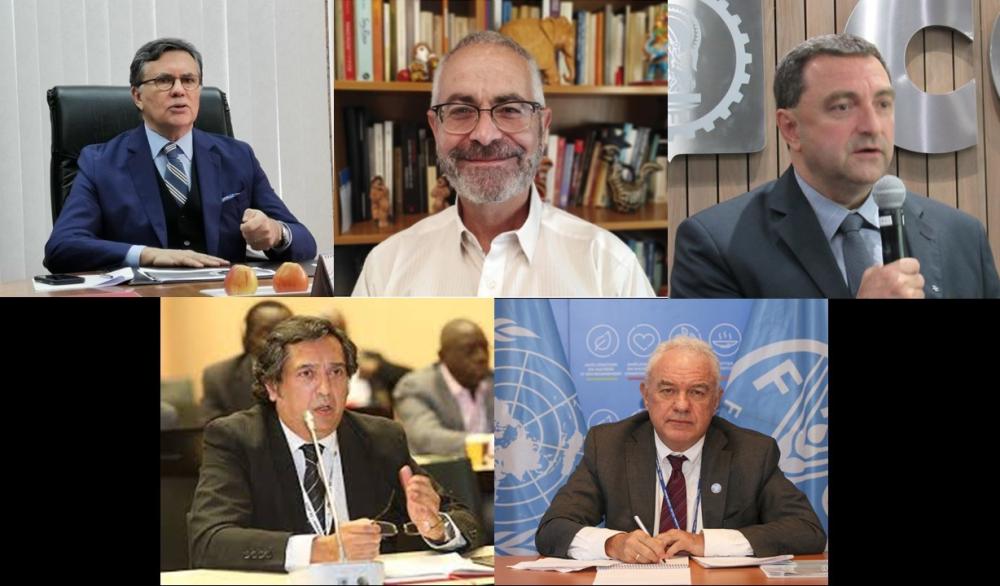Science and innovation are pillars for transforming agriculture and resolving the crisis in Latin America and the Caribbean, stated specialists at a regional conference of agricultural engineers

San José, 1 March 2023 (IICA) – Science and innovation will increasingly be decisive allies for agriculture in a context in which strengthening food security and reducing environmental impacts are at the top of the global agenda.
This was the observation of specialists of the Pan-American Association of Agricultural Engineers (APIA), in a high-level debate that addressed the different ways to increase agrifood production, efficiency and sustainability in a context of climate change and biodiversity loss.
The event was part of the 2023 APIA Conference Series and was organized together with the Inter-American Institute for Cooperation on Agriculture (IICA). This online conference was followed by over one hundred agricultural engineers and other professionals from 23 countries in the region.
The conference stressed the implications for agriculture of the decisions taken at the United Nations Climate Change Conference (COP 27) and Biodiversity Conference (COP 15), held in late 2022 in Egypt and Canada, respectively.
The speakers were the President of the Confederation of Agricultural Engineers of Brazil and APIA Southern Cone Vice President, Kleber Santos; the Director of Foreign Relations and International Cooperation of the Ministry of Agriculture and Rural Development of Israel, Daniel Werner; and IICA Director General Manuel Otero.
APIA President Octavio Pérez Pardo, who opened the conference, said that agricultural engineers are central players in discussions that cut across production and the environment, as they are strongly involved in defining innovative actions and policies. “We are responsible for transferring knowledge from academia and research centers, which are fundamental for large and medium-sized producers and family farmers”, he said.
Skills and technology transfer
Daniel Werner, an Argentine agricultural engineer based in Israel for the last forty years and a key agriculture official in Israel, offered an analysis of the commitments taken on by the different nations regarding food production in the context of the Paris Agreement climate change guidelines.
Werner stressed the need to transfer knowledge and technology to farmers in the current context.
“Some 74 percent of Nationally Determined Contributions, which are each State’s climate action plans, identify capacity building as an essential element for implementing the measures and policies that will allow us to mitigate climate change”, he said.
Werner said that the region of Latin America and the Caribbean has a long way to go in educating farmers and increasing investment in technology to address current challenges.
Brazilian agricultural engineer Kleber Santos, who participated in December at the United Nations Conference on Biodiversity in Montreal, spoke about the discussions that were held, particularly the adoption of a Global Biodiversity Framework.
“This instrument is as important as the Paris Agreement, which set the world’s goals for tackling climate change. It is a global framework seeking to fight against biodiversity loss in the world and promote restoration actions”, he explained.
The goals include conservation and effective management of at least 30% of land, continental waters, coastal areas and oceans, with an emphasis on the areas of particular importance for biodiversity and ecosystem services. Santos considered that these are unavoidable issues for agricultural activity.
Science and innovation tackling the crisis
Manuel Otero also referred to the threats posed in the international context and referred to the severe crisis facing Latin America and the Caribbean: “We are only now coming out of the pandemic, which was a major setback for our GDP, greater than in the rest of the world. We have gone backwards in terms of food security and we are in a very serious situation from which we must emerge stronger, with agriculture as a key element”, he said.
IICA’s Director General also said that science and innovation are transformative elements and the pillars for many positive actions currently implemented in the region.
“Our goal must be the industrialization of primary production. The ongoing production of commodities for the world does not do us any good. This is why we must add knowledge and technologies and understand that international markets are dynamic in their demands”.
Otero said that knowledge will make it possible to achieve goals such as the production of food in environments where this previously seemed impossible.
“We are at a new frontier of science and technology, and so we must continue to strengthen our agriculture research systems”. Otero mentioned the importance of institutions such as EMBRAPA in Brazil and the INTA in Argentina, with which IICA has close ties in joint work and collaboration.
“We have to aim for an innovative agriculture and increase investment in research. Unlike what is happening in developed countries, where for every 100 dollars that agriculture contributes to the economy, 3 dollars are re-invested, in Latin America few countries re-invest more than one dollar. This is cause for concern”.
“There is a new agriculture and we must position ourselves without delay to attend to global demands, which now require a nutrition- and climate-smart agriculture, to add value efficiently through science and technology; a socially responsible agriculture”, Otero concluded.
Mario Lubetkin, Deputy Director General and Regional Representative of the FAO for Latin America and the Caribbean, also participated in the event. He said that the challenging scenario that the world and the region are facing in terms of agrifood systems require a coordinated response. Lubetkin considered that Latin America and the Caribbean can produce food for twice their population, even though 40 percent of their inhabitants had to endure moderate or severe food insecurity in 2022.
More information:
Institutional Communication Division.
comunicacion.institucional@iica.int